In a previous article, we discussed Corporate-Owned Life Insurance (“COLI”) and how it can benefit your business and enhance your estate. Overall, life insurance, particularly in the corporate sense, is a valuable asset and in the right circumstances, there are many benefits to owning it.
Some of the key benefits to COLI include the following:
- Growing wealth on a tax-exempt basis to enhance estate values;
- Providing diversification from other asset classes and creating cash values which can be borrowed against to provide flexibility; and
- Delivering liquidity when needed – e.g., to fund estate tax bills, repay borrowings, fund buy-sell agreements, etc.
Notwithstanding the above benefits of COLI, like most areas in life, there are certain caveats to be mindful of when considering COLI as a tax-efficient investment strategy.
Ownership Structure
It is critical to give adequate thought as to which entity within a particular corporate group should own the COLI. For example, depending on the purpose of a policy, we may prefer to have a Holding Company (“Holdco”) own a policy instead of an Operating Company (“Opco”).
Specifically, if the Opco is a “saleable” business, we generally want to keep the insurance asset separate and apart from any future sale. It can also be challenging to transfer a COLI policy between corporations as this may trigger unintended tax consequences.
Moreover, if the business is “saleable” and shares in the business may otherwise qualify for the tax-free Lifetime Capital Gains Exemption (“LCGE”), the insurance asset is generally considered a non-qualifying (i.e., “bad”) asset for the purposes of claiming the LCGE. i.e., holding an insurance policy in an Opco could potentially “taint” / prevent a shareholder from accessing his/her LCGE on a sale event – by resulting in the corporation being “offside” for purposes of the requirements to claim the LCGE. Thus, from a tax planning perspective, we may want to keep the life insurance in a Holdco.
Lastly, in certain cases, where a corporate Estate Freeze involving a Family Trust has been performed, the Holdco may be the optimal entity to be the policy owner. Specifically, as it is not uncommon to have a Holdco as a corporate beneficiary of a Family Trust, business profits from an Opco may generally be paid tax-free from the Opco to the Holdco (via the Family Trust) which can provide flexibility and allow for tax-efficiency in funding policy premiums.
Beneficiary Designation
Make sure to select the right beneficiary! Remember that you are using (“low-taxed”) corporate dollars to fund this corporate “asset” so if the corporation owns the policy (asset), pays for the policy (again, asset) but you designate you or your spouse as the beneficiary, then the Canada Revenue Agency may assess a taxable shareholder benefit, which is not a good thing!
What is a taxable shareholder benefit? Essentially, it is a Fair Market Value (“FMV”) benefit (i.e., taxable income inclusion to the shareholder) assessed from using a corporate–owned asset for personal use without paying FMV consideration for the benefit.
Creditor Protection
COLI can achieve many objectives but can leave your policy vulnerable to the corporation’s creditors. To minimize this risk, additional planning may be required and may include having another company own the policy (e.g., a Holdco) and the Opco designated as the beneficiary. However, this somewhat more complicated structure may not be suitable depending on your particular facts and circumstances. In this case, personally-owned life insurance may be considered as an alternative ownership structure to provide creditor protection benefits.
Secure & Integrated Planning
Purchasing COLI can sometimes get complicated – as may be evident from the above! Working with an experienced advisor will provide you with the knowledge and expertise required to properly structure your plan. Your advisor will be able to help you make informed decisions on questions such as the following:
- Does my Shareholders’ Agreement accurately reflect and align with the insurance strategy implemented?
- How can I leverage the policy to create a tax-efficient retirement income stream (if desired)?
- Will COLI impact my ability to claim the LCGE on a future share sale – as alluded to above?
- Upon death, will the funds flow appropriately to achieve my estate planning objectives? Should I be considering “Insurance Tracking Shares” as a Planning Tool – stay tuned for a future article about this planning technique to learn more.
Implications of Policy Transfers
It is always good to know the big picture and when it comes to COLI, it is important to know if there are plans to sell the corporation in the future. If so, keep in mind that when the policy is transferred to a shareholder from the corporation, a disposition will occur which may result in a tax liability to the corporation. There is also a potential income inclusion to the shareholder as the policy may be treated as a taxable dividend in-kind.
As alluded to above, it is critical to proactively plan and structure the ownership optimally from the start to provide maximum flexibility and reduce the risk of encountering unintended consequences down the road.
In a Nutshell…
Permanent COLI can be a very powerful and tax-efficient tool to provide protection and also act as a tax-efficient vehicle to enhance and transfer wealth to the next generation. However, it is important to consider optimal structuring and associated factors when using COLI to achieve your goals.
Please feel free to contact a member of The Rosedale Family Office if you would like to learn more about COLI and how it may be incorporated into your own succession and legacy plans.

